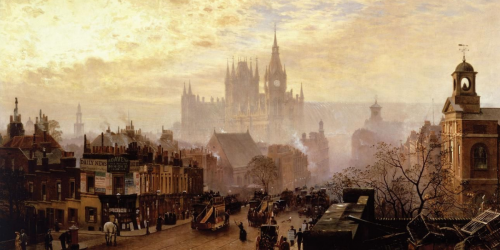
Winning the Lucy Cavendish Fiction Prize was the key to getting a publishing deal
Megan Davis, winner of the 2021 Fiction Prize with The Messenger, on her writing career and the benefits of entering a prize
The first in a series of blogs, Elena Casas tells us about her career and her experience of being shortlisted for the 2021 Fiction Prize
The first book I wrote was called The Adventures of the Margaret Ellen, A Pirate Ship. The Margaret Ellen was a cardboard box I painted with rigging and portholes and sailed around the garden, with my sister as a reluctant cabin boy. I think she was three and I was seven. The Margaret Ellen crossed the Atlantic many times, returned with cargoes of looted doubloons and sunk its rivals in gun battles off Jamaica. I wrote it all down in an A3 scrapbook with illustrations in coloured pencil.
The point I’m making of course is that I always wanted to be a writer, which isn’t to say I believed that was any more realistic than becoming a pirate, or a mermaid, or any of the other characters in the scrapbook. I first seriously sat down to write fiction as an adult at the age of 30 on the Trans-Siberian Railway, thinking that if I didn’t write anything in eight days of watching the taiga roll past my bunk, I really wasn’t a writer. On the train, I drank vodka with Russian soldiers and failed to finish War And Peace, but I did write just a little bit, and when I came back I wrote a little bit more. I’ve never had the courage to enrol in any formal writing course - that still seems an audacious claim to stake, that my attempts to write should be sealed with any kind of qualification. That first manuscript was based on fictionalising stories I’d collected as a reporter in various refugee camps; I worked on it for a couple of years and shopped it around agents, before realising those weren’t my stories to tell.
The next idea came to me in that week - the second week of March 2020 - when we were all cut loose from our moorings and left to float. Two people, a country house, and the ways we take our revenge on the people we purport to love. The secrets and jealousies inside a marriage (the book’s tagline is ‘a gender-reversed Rebecca’ although it doesn’t stick too closely to that plot) turned out to be richer waters for me than the geopolitical kind of conflict, and I had a first draft by the time I entered the Lucy Cavendish Fiction Prize in the autumn. It’s a completely different book from the one I thought I wanted to write, but the sea is everywhere in it, so I haven’t come that far from the Margaret Ellen.
I entered in 2018 with my previous manuscript and wasn’t longlisted (and I’ve entered plenty of other competitions unsuccessfully), so I didn’t have any expectations. Discovering I had made the longlist this year was the most amazing validation; I hadn’t shown the manuscript to anyone else at the time, so it was the first time I thought I might not be writing absolute nonsense. My agent, the lovely Lisette Verhagen at PFD, approached me the same week after reading the manuscript for the Prize, and I signed with her the day before I found out I’d been shortlisted, so the Lucy Cavendish Prize directly got me an agent. I am so grateful to the Prize and everyone involved who saw something in my work.
I think the most important piece of advice for aspiring writers is the hardest to take on board - it’s to understand that you are not ‘aspiring’ at all. You have to silence the voice that tells you this is a ridiculous idea, or that the odds are like playing the Lottery, or that ‘everyone has a novel in them’ so yours is not special. Everyone has not written a book. If you have - even part of a book - you are a writer. It’s not a status you qualify for by getting an agent or a Masters or even a book deal, it’s what you do when you sit down to write. If you have a manuscript, that is an extraordinary achievement in itself, and it means you are as qualified to enter this Prize, and as likely to be shortlisted, as anybody else. Somebody has to win, so why not you?

Megan Davis, winner of the 2021 Fiction Prize with The Messenger, on her writing career and the benefits of entering a prize

Charlotte Wightwick, 2021 Fiction Prize shortlisted author, explains how writing plays an integral role in her life

An interview with Briony Cameron, shortlisted for the 2021 Fiction Prize with The Ballad of Jacquotte Delahaye